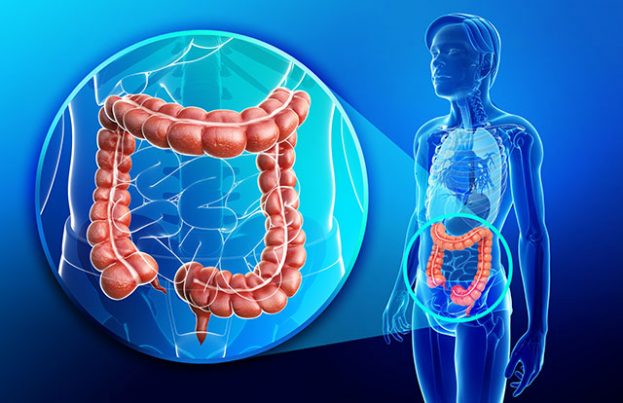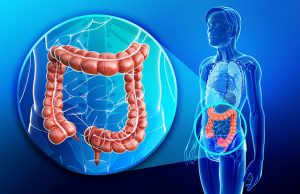
Trichuriasis – causes, side effects and treatments at NaturalPedia.com
Tuesday, July 10, 2018 by Janine Acero
http://www.naturalpedia.com/trichuriasis-causes-side-effects-and-treatments-at-naturalpedia-com.html

Trichuriasis is an infection of the large intestine. It is caused by a parasite called Trichuris trichiura, commonly known as “whipworm” for its characteristic whip-like appearance. The parasite has a thick section on one end that resembles the whip handle, and a narrow part on the other end that looks like the whip.
Trichuriasis occurs mainly in developing tropical or subtropical regions with hot, humid climates and in areas with poor hygiene and sanitation; where human feces is used as fertilizer or where people defecate directly onto soil. Infections also occur in the southern U.S., mainly in children. Anyone who has come into contact with feces containing whipworm parasites can contract trichuriasis.
Approximately 600 to 800 million people in the tropics have trichuriasis. This type of infection can also occur in animals, like cats and dogs. Mild cases can cause physical and developmental issues, while heavy infection can lead to colitis and dysentery.
Stool is examined for the presence of eggs and parasites. The lemon-shaped eggs may be difficult to detect in mild infections.

Known symptoms and risk factors for trichuriasis
Trichuriasis can cause a variety of mild to severe symptoms, which may include:
- Abdominal pain
- Bloody diarrhea
- Fecal incontinence, or uncontrollable defecation
- Headaches
- Nausea
- Painful or frequent defecation
- Sudden and unexpected weight loss
- Vomiting
The following factors may increase your likelihood of contracting trichuriasis:
- Individuals living in tropical places.
- Exposure to contaminated soil.
- Soils treated with fertilizer made of biosludge (sewage waste).
- Individuals living in regions with poor sanitation and overall unhygienic conditions.
- Living or traveling to areas with poor sanitary facilities.
- Eating food contaminated with egg-carrying soil.
- Eating raw or uncooked fruits and vegetables.
Body systems harmed by trichuriasis
Trichuriasis can lead to the following complications if left untreated:
- Anemia
- Growth and developmental delay in children
- Malnutrition
- Rectal prolapse
Food items or nutrients that may prevent trichuriasis
There are no particular foods or nutrients that may prevent trichuriasis, but there are foods that can help eliminate intestinal worms. These include:
- Carrots – There are certain nutrients and organic compounds that are deadly for the eggs of intestinal worms, such as vitamins A and C, and beta-carotene, which are abundant in carrots. Vitamin A can kill the eggs of intestinal worms, while vitamin C boosts the immune system and helps fight off further infection.
- Coconut – Coconut juice can effectively boost antioxidant and nutrient levels, which can help get rid of parasitic worms in your gut.
- Garlic – Garlic contains various sulfuric compounds that are deadly to parasitic worms.
- Neem – Neem is an excellent detoxifier and can clear out toxins that are secreted by parasites.
- Pomegranate – Pomegranate leaves and fruit are high in anthelmintic (anti-parasitic) compounds, namely punitive, which effectively kills parasitic worms.
- Pumpkin seeds – Pumpkin seeds contain a potent chemical called cucurbitacin, which can paralyze parasitic worms and force them to be expelled from the gut.
- Turmeric – This powerful spice contains anthelminthic properties that can make parasites ill, and can damage their eggs.
- Unripe papaya – Unripe papaya has a very high concentration of papain, another anthelmintic compound, which can naturally eliminate intestinal worms.
Treatments, management options for trichuriasis
The most common treatment for trichuriasis is mebendazole. Albendazole and ivermectin are alternative treatments.
Patients treated with ivermectin are further assessed for coinfection with Loa loa if they have been in areas of central Africa where it is transmitted; ivermectin can induce severe reactions in patients with Loa loa infections.
The best way to prevent trichuriasis include the following:
- Staying away from soil that may be contaminated with human feces.
- Washing your hands thoroughly with soap and warm water before handling food.
- Teaching children to always wash their hands before handling food to prevent infection.
- Washing, peeling, and/or cooking all raw vegetables and fruits before eating, particularly those that have been grown in soil that has been fertilized with manure.
Where to learn more
- Lithium in Drinking Water May Lead to Longer Life
- 8 Foods that Fight Parasites Naturally
- The big lie of genetics exposed: human DNA incapable of storing complete blueprint of the human form
- Helminthic Therapy: Cure Food Allergies and Diseases by Ingesting Worms (Opinion)
- MS Patients to Participate in an Experiment by Ingesting Worm Eggs
Summary
Trichuriasis is an infection of the large intestine caused by the parasite Trichuris trichiura. The parasite is commonly known as “whipworm” because of its whip-like appearance.
Trichuriasis commonly occurs in tropical or subtropical places with hot, humid climates. It is found in areas where human feces is used as fertilizer or where people defecate directly onto soil.
Trichuriasis causes bloody diarrhea, painful or frequent defecation, nausea, and vomiting, among other symptoms. Prolonged and untreated infections can cause rectal prolapse, malnutrition, anemia, and growth and developmental delay in children.
Sources include:
Tagged Under: Tags: Trichuriasis





